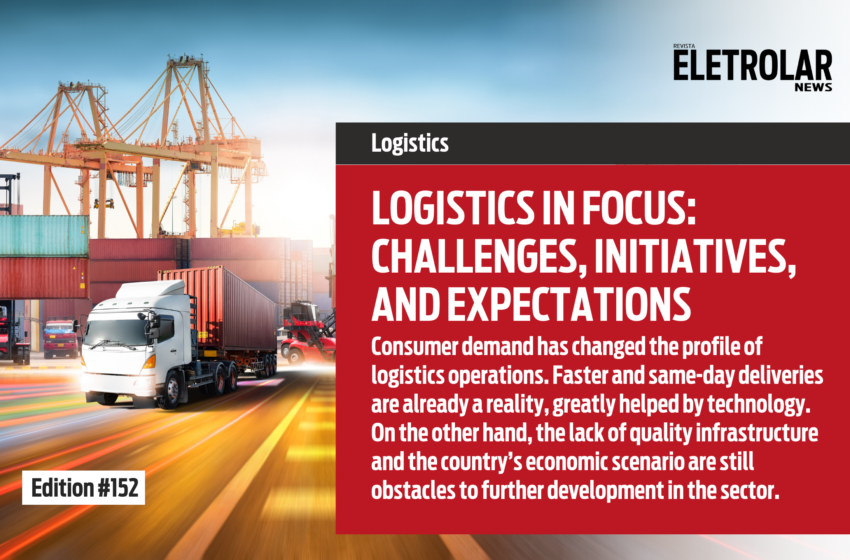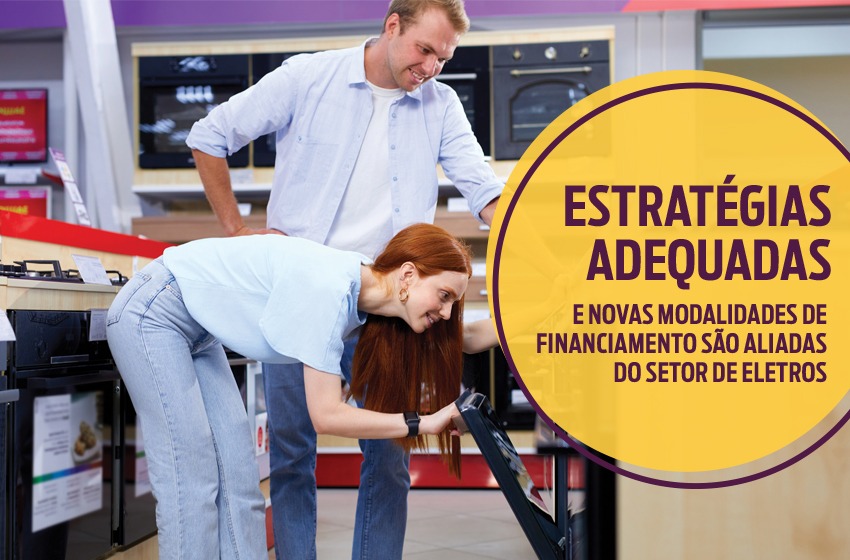
Logistics in focus
Challenges, initiatives, and expectationss
Consumer demand has changed the profile of logistics operations. Faster and same-day deliveries are already a reality, greatly helped by technology. On the other hand, the lack of quality infrastructure and the country’s economic scenario are still obstacles to further development in the sector.
by Dilnara Titara
The logistics sector has never been more observed than in recent years, and its need is increasingly evident. At the beginning of the pandemic, demand for products and supplies dropped. A few months later, however, it grew exponentially, accompanied by an increase in the value of freight and fuel and the obstacles in the Brazilian territory. These factors forced the entire chain to reinvent itself with the use of technology to ensure retail demand and faster delivery.

New logistics operations are changing, and the introduction of technology is one of those changes. “The sector is in a constant search for innovation. The trend is to create solutions that make deliveries faster and more sustainable. We believe that advances in technology and in the energy sector will be even more allies of world logistics”, says Daniel Ribeiro, director of logistics at Via.
The logistics sector faces a problem of two variables, density, and scale, points out Luiz Vergueiro, director of operations at Mercado Livre. “Anywhere where there is a low density of deliveries presents difficulties. And, with scale, large companies can make the entire logistical process and freight cheaper.”

Logistical challenges
Each Brazilian region, regarding logistics, has a different profile. Jorge Catani, logistics director at Infracommerce, says that the North Region, for example, does not connect to the others. The capital Manaus (AM) has a gigantic industrial center, with the largest production of white goods in the country, but the main mode is maritime. It takes five to seven days to reach the other side of the Amazon River, and only then is it possible to travel by road to the big DCs.

With the size of the country, the sector faces several difficulties, and the importance of integrated work is evident. “The main challenges of Brazilian logistics are the lack of quality infrastructure, the lag in the transport structure, the lack of connection between the modes and the great concentration of transport in the road sector, in addition to the lack of safety on the roads”, says Jorge Catani.
According to data released by the National Transport Confederation (CNT) and by SEST SENAT, the result of the 25th edition of the CNT Highway Survey, the general state of the Brazilian road network worsened in 2022. From 110,333 kilometers evaluated, 66% were classified as regular, bad or bad. In 2021, this percentage was 61.8%.

There is still a very large bureaucracy in the sector’s legislation, which complicates the full digitization of operations and needs to be modernized. “Taxation, as in other sectors, is also a challenge, as well as the urban distribution of cargo and the conflict with the dynamics of cities, forcing creative solutions on the part of logistics operators and authorities”, says Rodrigo Paixão, CEO at Contrail Logística.
The adoption of new technologies to automate processes, streamline deliveries, personalize service, and offer a better customer experience can change the logistics sector in the country. In addition, it is important to invest in the railway network and greater use of the hydrographic network to integrate modes and connect all states more efficiently.
News on the route

The introduction of technology is one of the main aspects placed as an opportunity to advance the logistics sector in Brazil. Routing algorithms efficiently achieve maximum last mile vehicle optimization. Another point in the economy area is the creation of credit for fleet renewal and expansion. In terms of infrastructure, it is necessary to provide equity to the roads and security for the various regions.
The logistics sector is one of the fastest growing markets in the world, highlights Gabriel Pavan, account executive at KM Cargo. “We believe that the improvements to be made in the country revolve around the roads, which could be easily accessible, mitigating breakdowns, reducing mileage and, consequently, lowering the logistical cost.”

Fulfillment and full commerce strategies have grown in the sector. Omnichannel is another movement that influences the future of logistics, adapting to the new demands of the “phygital” consumer. Via saw a 200% growth in online sales in the second quarter of 2022, in new markets, a movement that is repeated in the company’s macro scenario, in which about 50% of digital sales go through physical stores.

The retail market is changing with e-commerce. It is the tip of an iceberg of production, manufacturing, processing, and transportation of items that in the end, will be sold on the platform. “It is estimated growth of up to 56% in Brazilian e-commerce by 2024. A market that will overheat, requiring more intelligence, resources and investments aimed at guaranteeing the country’s logistics capacity”, says Alex Fontes, senior transport manager at Mercado Livre.
Expectations for the sector
With the implementation of new technologies in the logistics sector, it is possible to make processes more agile. Companies can test new business models, monitor performance, route delivery, and optimize time. The use of technology is directly related to optimizing investment and time.

An important alternative to decentralize road transport and focus on more efficient and sustainable logistics is investing in rail transport. The flow of outflow through the railroads has been gaining a lot of share, reaching the main ports of Brazil, leading in the end, to the integration and use of the three modes (railway, road and sea). This consequently generates a lower transport cost.
In addition to the expectations associated with new technologies, there is a commitment around resources and possibilities for good sustainable practices. “We understand that sustainability is a development concept based on the global vision of an organization’s processes, with lasting growth and balanced use of resources. A sustainable company also promotes prosperity and well-being for everyone”, says Pedro Maniscalco, director of operations at Jamef.

Road freight transport has been adapting to changes and investing in technology and training of professionals in the sector, says Lauro Valdivia, technical advisor at NTC&Logística. “The promises of infrastructure improvement are expected to come true. There have been improvements, but they are still far from the market’s needs. It is necessary to improve the conditions of roads, ports, airports, urban traffic, reduce bureaucracy and demands, etc.”

Insights from each company
See how the interviewed companies adapt to face difficulties, their strategies, and the vehicles they use to transport their products.






Source: Eletrolar News #152





